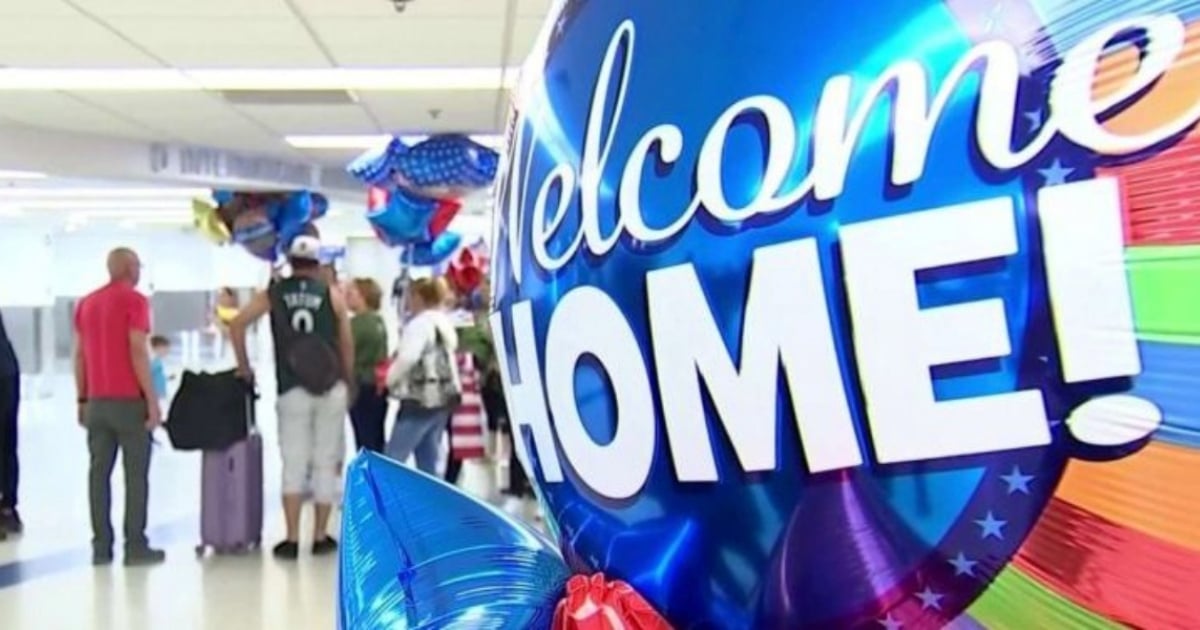Many Cubans with approved family reunification processes are voicing frustrations over being unable to travel to the United States since Donald Trump assumed the presidency. A report by Martí Noticias highlights that numerous immigrants from nations such as Cuba, Haiti, Colombia, Ecuador, Guatemala, Honduras, and El Salvador have encountered difficulties boarding flights to the U.S. since last Monday.
Olga Lidia Hernández, a participant in the Cuban Family Reunification Parole (CFRP) program, shared her experience of being barred from boarding a plane with her two daughters. She was only advised to seek further information at the U.S. embassy. "They told me my flight permission was denied without any additional explanation," she stated.
Olga Lidia and her daughters had been waiting for eight years for travel authorization. Her mother, who resides in Florida, is devastated by the flight cancellation. "I traveled to Cuba, and we were turned away at the airport. They treated us poorly. We followed all the correct immigration procedures. It’s not fair," she lamented through tears.
The CFRP faced a halt for several years due to incidents related to the so-called "Havana Syndrome." It was reinstated in 2023 by the Biden administration, which introduced several updates to modernize the program.
An anonymous source familiar with the immigration processes indicated to Martí Noticias that the current administration is "unhappy" with numerous actions taken by the previous administration, yet no final decision has been reached regarding family reunification programs. "Since January 20, when President Donald Trump took office, not a single beneficiary of these family reunification programs has arrived," noted another source knowledgeable about the immigration procedures.
In August 2023, the U.S. government launched the Form I-134A, enabling applicants to complete most of the process steps via a secure online platform. This innovation aimed to reduce travel, time, and paperwork burdens, thus enhancing access to the program.
In July of last year, the U.S. Embassy in Havana announced the availability of all necessary documentation in Spanish to inform Cubans about the process. Additionally, it implemented a new service called the Consular Navigator to provide further assistance to interested parties.
Meanwhile, during his first week in office, Trump already terminated the CBP One program, which allowed migrants to schedule appointments for asylum requests in the United States. He also revoked the travel authorization of approximately 10,000 refugees who had already been approved to reside in the country.
Understanding the Challenges of Cuban Family Reunification
Why are Cubans facing difficulties traveling to the United States?
Cubans are facing travel difficulties due to changes in U.S. immigration policies since the inauguration of Donald Trump, which have affected the Cuban Family Reunification Parole program and other immigration processes.
What was the impact of the "Havana Syndrome" on the CFRP?
The "Havana Syndrome" incidents led to the suspension of the Cuban Family Reunification Parole program for several years until it was reinstated and updated by the Biden administration in 2023.
How has the U.S. government modernized the CFRP program?
The U.S. government introduced Form I-134A in 2023, allowing applicants to complete most steps of the process online, reducing the need for travel, time, and paperwork, thereby increasing accessibility to the program.
